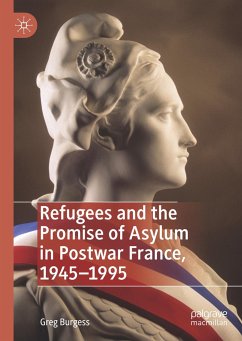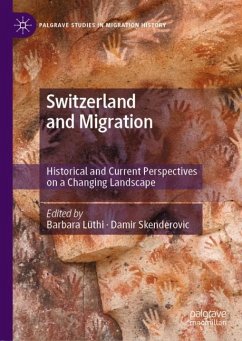
Postwar Migration Policy and the Displaced of the British Zone in Germany, 1945-1951
Fighting for a Future
Versandkostenfrei!
Versandfertig in 6-10 Tagen
106,99 €
inkl. MwSt.
Weitere Ausgaben:

PAYBACK Punkte
53 °P sammeln!
This book examines the experiences of refugees who populated the Displaced Persons (DP) camps in the British Zone of Allied-occupied Germany after the Second World War. With a specific focus on Polish and Jewish communities, it explores the interaction between migration policy and the migration strategy of refugees - or in other words - the relationship between DP policy and individual choices, and how these evolved over time. The book aims to harmonize often contradictory images of displaced persons in the British Zone of occupation by taking a comparative approach and analysing conflicting i...
This book examines the experiences of refugees who populated the Displaced Persons (DP) camps in the British Zone of Allied-occupied Germany after the Second World War. With a specific focus on Polish and Jewish communities, it explores the interaction between migration policy and the migration strategy of refugees - or in other words - the relationship between DP policy and individual choices, and how these evolved over time. The book aims to harmonize often contradictory images of displaced persons in the British Zone of occupation by taking a comparative approach and analysing conflicting identifications and state-individual relations. Drawing on the records of the International Tracing Service, refugee memoirs, DP publications distributed in the camps themselves, and personal petitions and correspondences, the author sheds light on the experiences of displaced persons and illustrates the difficulty of making clear-cut distinctions between forced and voluntary migration. Today, as in the post-war period, refugees' access to social rights and welfare, settlement rights, and the possibility of family reunification, can all be determined by the same labels that were so fiercely contested after 1945. A dichotomy between so-called 'economic' and 'political' migration endures, and many claims to asylum are today rejected on the grounds of applicants not being formally recognized as 'genuine' refugees and recipients of aid. This book therefore adds to our growing understanding of the plight of refugees and the need to ensure access to justice for all through the ongoing building of an effective, accountable, and inclusive refugee regime.












